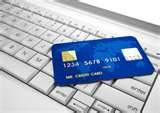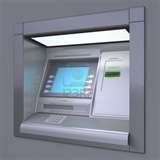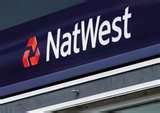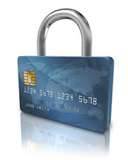 Online banking is where any
computing system allows individuals to perform their banking activities at home through the use of
the internet. The majority of online banks are just traditional banks which also offer online banking, while others are online only and
offer no physical presence.
Online banking is where any
computing system allows individuals to perform their banking activities at home through the use of
the internet. The majority of online banks are just traditional banks which also offer online banking, while others are online only and
offer no physical presence.
On the internet online banking has many different names, it
is also known as PC banking, home banking, electronic banking or Internet
banking.
Today online banking
allows you to perform various different routine transactions, these could be a
range of things, you might shop online for a loan, life insurance or a home
mortgage, but when it comes to that time to commit, most people generally feel
more comfortable working with your banker or an agent you know and trust.
Although online banking is not in any way an excuse for people to change their money spending habits. Instead, it uses the computer technology available to us today to give you the option skipping the time-consuming and paper-based aspects of traditional banking. This is to allow you to manage your finances more quickly and efficiently but you can do so from home.
Origin of online banking
The popularity of the Internet has grown rapidly and this acts as an advert to banking agencies, therefore, popularity of personal computers presented both an opportunity and a challenge for the banking industry overall.
Over the years, financial
institutions have used computer networks to automate millions of daily
transactions. Usually today the only paper record is the customer's receipt at
the point of sale. Now that the vast majority of customers are connected to the
Internet, banks envision similar economic advantages by adapting those same
internal electronic processes to use at home.
Automated Teller Machines
 An automated teller machine
is an electronic banking outlet,
which allows customers to complete basic transactions without the assistance of
a branch representative or teller.
An automated teller machine
is an electronic banking outlet,
which allows customers to complete basic transactions without the assistance of
a branch representative or teller. There are genuinely two primary types of automated teller machines, or most commonly known as ‘ATMs’. The basic units allow the customer to withdraw cash and receive a report of the account's balance. However, the more complex machines will accept deposits, facilitate credit card payments and report account information. Although to access the advanced features of the complex units, you will usually need to be a member of the bank that operates the machine which defeats the idea of getting things done quickly without any assistance.
Brick-to-click banks
Most large national
banks, many regional banks and even smaller banks and credit unions around
today offer some form of online banking. Those that do are sometimes referred
to as "brick-to-click" banks, both to distinguish them from
brick-and-mortar banks, that yet have to offer online banking, as well as from
online or "virtual" banks that have no physical branches or tellers yet.
The main challenge
for the banking industry has been to try to design this new service in such a
way that a bank agencies customers will optionally learn to use and trust it,
considering banks have spent generations trying to earn our trust; they are not
going to risk that on a website that can be frustrating and confusing at times
or less than secure.
A vast majority of
the large banks now such as NatWest offer fully secure, fully functional online
banking for free or for a small fee. However, smaller banks today now offer
limited access to customers; for instance, you might be able to view your
account balance and history but not any transactions made online.
As more and more
banks succeed online, the amount of customers who use their sites will grow
rapidly.
 Online
banking allows credit card or debit card holders to access their payments
online. NatWest is a prime example of a company that participate in online
banking; it enables clients to use their personal, private and business banking
at any time with internet access.
Online
banking allows credit card or debit card holders to access their payments
online. NatWest is a prime example of a company that participate in online
banking; it enables clients to use their personal, private and business banking
at any time with internet access.
NatWest is readily available on mobile phones as it
has an app, so that you can manage your money when on the move. The app enables
you to check up on any transactions, transfer money, set updates and it is now even
possible to find the closest cash machine from your mobile phone or another
type of portable device.
Virtual banks
Virtual banks are banks without bricks; from the customer's perspective, they exist entirely on the Internet, where they offer pretty much the same range of services and regulations as your local bank. Virtual banks pass the money they save on overhead like buildings and tellers along to you.
The main disadvantage
of using virtual banks revolves around ATMs. They have no ATM machines; virtual
banks typically charge the same surcharge that any brick-and-mortar bank would
if you used another bank's automated teller. Many virtual banks won't accept
deposits via ATM; you have to either deposit the check by mail or transfer
money from another account.
Security

Security of a customer's financial
information is extremely important, without any form of security online banking
could not possibly operate as too many unwanted situations would occur.
Financial institutions, being all companies that handle money, have set up
various security processes to reduce the risk of unauthorised online access to
a customer's records.
Attacks
Most of the attacks to do with online banking that’s used
today are based on deceiving the user to steal login data such as password and their
username. Two well known examples for those attacks are phishing and pharming.
Advantages of online banking
Online banking is very convenience unlike your local bank, online banking sites never close, they're available 24 hours a day; on a daily basis and they are only a few clicks of a mouse away.
If you're out of state or out of the country when a money
problem arises, you can log on instantly to your online banking personal
account and take care of the problem with no trouble.
Online bank sites generally have a much faster transaction
speed rate, they execute and confirm transactions at or quicker than ATM
processing speeds.
Efficiency
is always important when dealing with your money and by having one secure account it is much
simpler and safer for you to access and manage all of your bank accounts,
including IRAs, CDs, and securities.
Many online banking sites now provide sophisticated tools,
including account aggregation, stock quotes, rate alerts and portfolio managing
programs to help you manage all of your assets more effectively. They tend to
be compatible with money managing programs such as Quicken and Microsoft Money.
Online banking also eliminates paper waste, which is beneficial
not only for those who have to handle all the paper work, but also for the
environment.
Disadvantages of online banking
In order to register for your bank's
online program, you will probably have to provide ID and sign a form at your
bank branch. If you and your partner wish to view and manage your assets
together online, one of you may have to sign a durable power of attorney before
the bank will display all of your holdings together, this is all a very time
consuming process.
Online banking sites can be slightly
difficult to navigate at first. It takes time to read the tutorials in order to
become comfortable in your virtual account.
Even the largest banks alter their websites and periodically
upgrade their online programs. Adding new features in unfamiliar places tends
to occurs regularly. You may have to re-enter account information at some
point.
Most people have trust issues when handling money through the
internet. They panic whether they done transactions correctly and whether their
transaction went through. But the best thing any customer can do is always
print the transaction receipt and keep it with your bank records until it shows
up on your personal site and your bank statement.
If someone needs to deposit cash or checks, they will
probably still have to spend time at the ATM. Unless the payment is directly
deposited, it usually has to be handled manually.
No comments:
Post a Comment